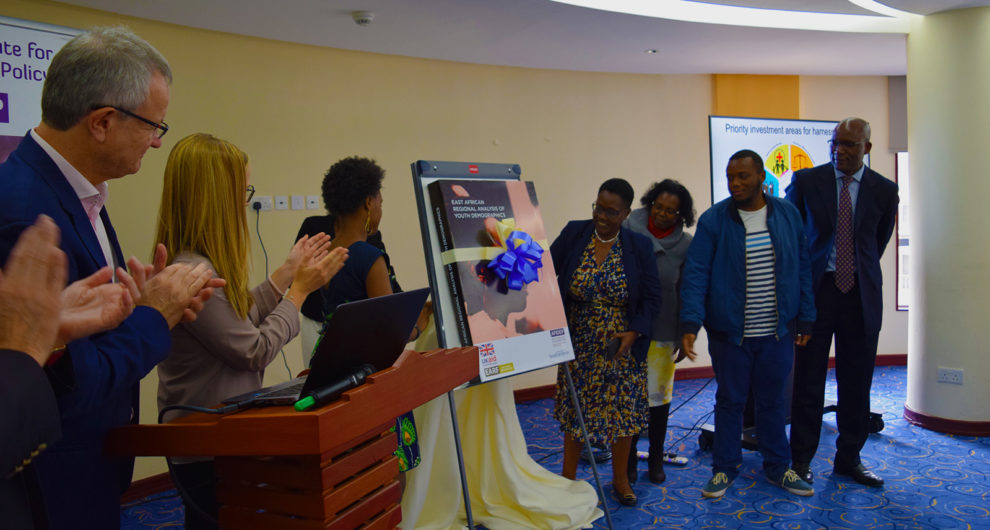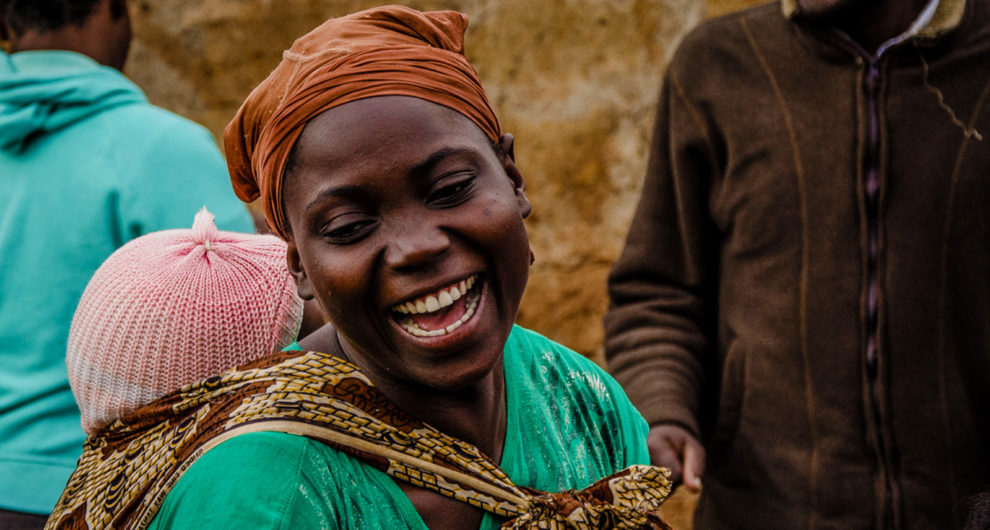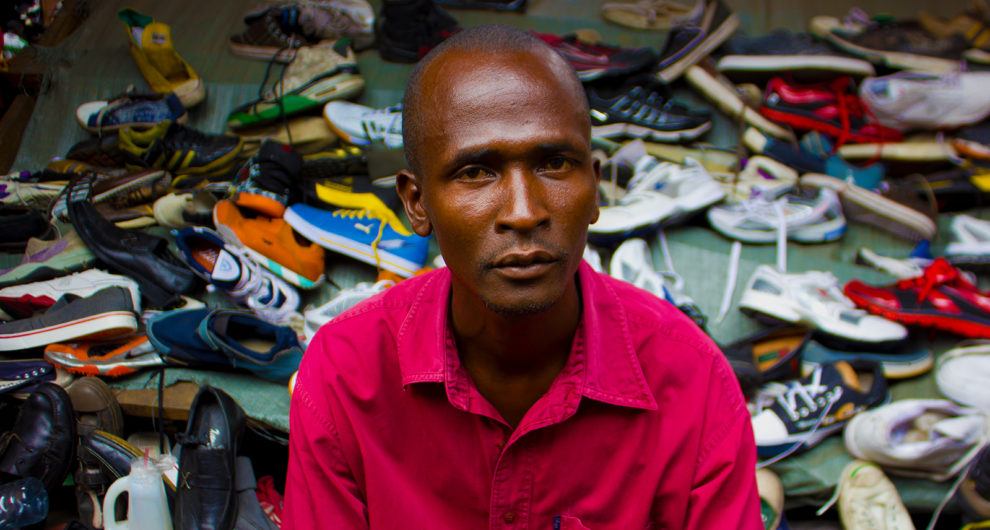Population Dynamics and Demographic Dividend




Population issues are central to most of Africa’s challenges and therefore, population dynamics is a major cross-cutting factor in achieving majority of the SDGs.
Similarly, in the Demographic Dividend framework, achieving a population age-structure which has more economically productive people relative to dependents is a necessary pre-condition for harnessing the demographic dividend.
Our work on population dynamics focuses on the drivers of rapid population growth, especially high fertility, the status of women, unmet need for contraception, youth demographics, early childbearing and migration.
Our work has stimulated unprecedented interest to address population and development issues across Africa:
- AFIDEP supported the office of the President of Malawi and the African Union (AU) to designate demographic dividend as the AU 2017 development theme.
- We have supported 13 African countries to develop awareness and policy options for harnessing the demographic dividend. Most of these countries are integrating it in their national development plans.
- Nine countries have integrated demographic dividend evidence and recommendations in their population policies and national development plans.
- AFIDEP work has contributed to positioning population dynamics and the demographic dividend as a key development priority for Africa for various development partners including: DFID, GIZ, NORAD, UN agencies, USAID and World Bank.
Under the strengthening evidence for action and accountability on sexual and reproductive health (SRH) for young people in Eastern and Southern Africa project, AFIDEP contributed to:
- Formulation of 2015 Adolescent Sexual and Reproductive Health (ASRH) policy in Kenya, which prioritised comprehensive sexuality education and contraceptive services for all adolescents
- Formulation of the 2015 Youth Friendly Health Services (YFS) standards in Malawi
- Adoption of a new Marriage Act in Malawi that raised the legal age of marriage from 15 years (with parental consent) to 18 years
- Improvement of availability of relevant data for decision-making through the development and integration of ASRH indicators in the District Health Information Systems (DHIS) in Kenya and Malawi
Current Projects
The Demographic Dividend project sought to support evidence generation and policy engagement to enhance government commitment to addressing population challenges and foster inclusive socioeconomic development using the demographic dividend paradigm.
With support from UNFPA Malawi, AFIDEP will produce a series of position papers on the implication of Malawi’s population dynamics on critical areas of development: poverty, transformational education and skills development, private sector development and job creation, environment and governance.
This project seeks to highlight the disparities in urban contraceptive, identify existing policy gaps and demonstrate the importance of family planning to sustainable urbanisation in Malawi.
The aim of the Policy Communication Fellows Programme is to develop the next generation of leaders from the less developed world regions who will shape policy in their countries, regionally and globally. The programme is jointly hosted by the Population Reference Bureau (PRB) and the African Institute for Development Policy (AFIDEP).
Advancing our understanding of the true prevalence of traditional methods of contraception in four African countries as well as women’s motivations for using these methods.
The BUILD program (Building Capacity for Integrated Family Planning/Reproductive Health and Population, Environment and Development Action) seeks to achieve strong political commitment, sustained financial resources and accountability for voluntary family planning and reproductive health.
BUILD is a 5-year program.
The Exemplars in Adolescent Sexual and Reproductive Health (ASHER) project seeks to identify countries that have made exemplary progress in reducing adolescent fertility rates/teenage pregnancies compared to their counterparts.
Past Projects
The study analysed the youth demographics in the East Africa Community (EAC) region and how this bears on ongoing demographic changes on the African continent which is characterised by declining fertility, child mortality and rapid population growth.
The Strengthening Use of Research Evidence for Adolescent and Youth Sexual and Reproductive Health (enSURE Adolescent and Youth SRH) project sought to increase the use of evidence in decision-making processes to improve adolescent sexual and reproductive health (SRH) in Kenya.
The Botswana Demographic Dividend project aimed to develop a Roadmap for the Ministry of Finance and Economic Development (MFED) to guide the implementation of the Botswana DD Study recommendations.
This project was completed in May 2023 and it was a successor project for the demographic divided modelling report that was completed in 2018. The report had key recommendations that the roadmap sought to provide an implementation framework:
The Botswana DD project was able to put the DD on the radar of Botswana’s Demographic dividend landscape to inform the government’s development planning framework. The government received the demographic-divided roadmap report which was developed through a stakeholder-based process. The roadmap will be used as a guide for Botswana’s planning and implementation framework. It is envisaged that the Demographic divided dashboard that was developed under the project will contribute towards steps to establish projects monitoring and performance framework for the country. The dashboard will not be a stand-alone system, rather, it is expected to be embedded into the integrated Development Projects Monitoring System (DPMS)for the country.
Under the leadership of South Africa’s Department of Social Development and Stats SA, we are pleased to host a seminar series in October and November 2020, titled Demography and COVID-19 in Africa – Evidence and Policy Responses to Safeguard the Demographic Dividend.
Find all the resources from the webinar series here:
Click a webinar for more information:
- WEBINAR 1 – Oct 21: The demographic impact of COVID-19: global, regional and national experiences
- WEBINAR 2 – Oct 28: An exploration of evidence-based service delivery in the times of COVID-19
- WEBINAR 3 – Nov 4: South Africa’s Social and Economic Programmes to Harness the Demographic Dividend
- WEBINAR 4 – Nov 11: The Impact of COVID-19 on the African Continent’s Prospects of Harnessing a Demographic Dividend
- WEBINAR 5 – Nov 25: WRAP UP SESSION – Series Synthesis and Policy Options
Related Items
Warning: Invalid argument supplied for foreach() in /home/daqh5xy6fshq/public_html/wp-content/themes/afidep2019/sidebar-relateditems-programme.php on line 83
Related Events
Apr 2024
Apr 2023
Jan 2023
Nov 2022
Aug 2022
Aug 2022
Aug 2022
Jun 2022
Sep 2022
Oct 2022
Aug 2022
Jul 2021
Jun 2022
Feb 2022
Dec 2021
Nov 2021
Oct 2021
Sep 2021
Aug 2021
Jul 2022
May 2021
Sep 2020
Aug 2020
Jul 2020
Nov 2019
Nov 2019
Aug 2019
Jun 2019
Apr 2019
Nov 2018
Sep 2018
Jul 2018
Jun 2018
Apr 2018
Oct 2017
Dec 2016
Nov 2016
Oct 2016
Oct 2016
Oct 2016
Sep 2016
Jun 2016
Jan 2016
Oct 2015
Oct 2015
Oct 2015
Sep 2015
Oct 2015
Jul 2015
Jun 2014
Nov 2013
Apr 2013
May 2011


